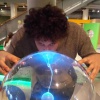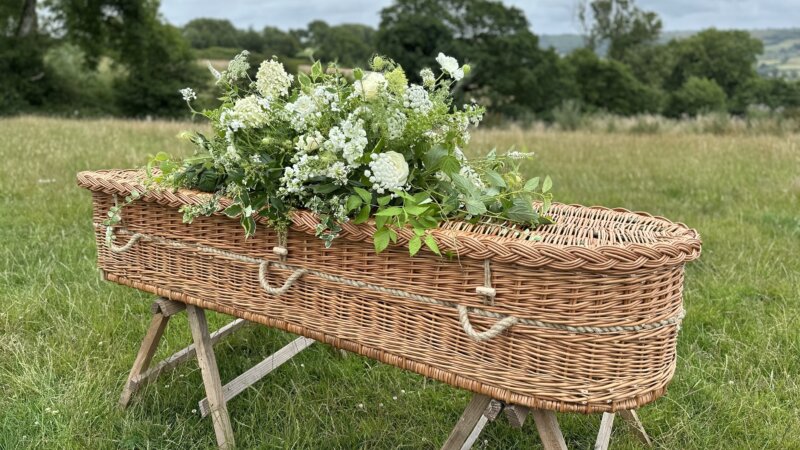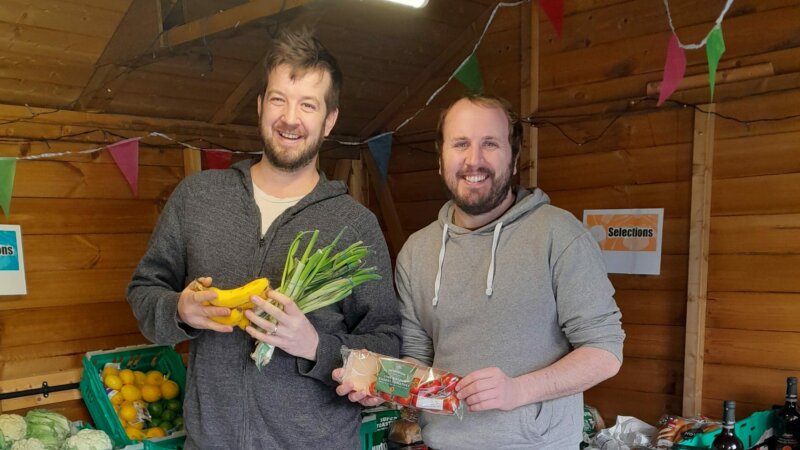Warren Ellis: Bearded violinist talks Dirty Three, Nick Cave and soundtracks|Bearded violinist talks Dirty Three, Nick Cave and soundtracks
Warren Ellis is a multi-instrumentalist best known as the violinist in Australian rock band Dirty Three. Formed in 1992, Dirty Three's live performances have been an inspiration to many an instrumental group, particularly the so-called post rock movement of the 1990s and 2000s. Fusing country and western, rock and roll, folk and punk into one riotous, semi-improvised sound, Dirty Three are still playing together after 20 years and eight studio albums, having put out the return to form Toward the Low Sun on Bella Union earlier this year.
Warren has also worked with Nick Cave and The Bad Seeds since the mid 90s, and also forms part of the psychedelic, beefed-up Bad Seeds spin-off group Grinderman, who so far have two albums under their belt. Since 2005, Warren - currently based in Paris - has also collaborated on a number of films scores with Nick Cave, including The Road, The Proposition and The Girls of Phnom Penh.
This year marks the 20th anniversary of Dirty Three. Did you ever expect the band to have this kind of longevity?
No, I think if you think about that sort of stuff it never happens. It's like Christmas - it never comes. At the start you just hope you can continue to create stuff that you feel good about. We never actually thought about how long we'd go for, but we did ask one question at the start. I think it was me that asked, "When do you think we'll stop?" And the answer was, "when we feel like we haven't got anything else to say".
I've never looked at anything in terms of how long it will go on for. I'm always surprised when I get another year out of it. I've always been one to take what I can and do it with the same attitude that I've always had. And I'm still doing it 20 years later, which baffles me. When I think it's been more than 20 years that we've been together, I do feel very proud of that achievement. It really does feel like something - more than I've been involved in anything in my life.
How has the new material from Toward the Low Sun worked in a live setting so far?
It's been really good. It's really developed since we recorded it, and it sounds much better now. Recording is always documenting where you are at that point in time, and then you usually get out and start playing it, and the songs either work or they don't work. That's just always been the way things have gone in any group I'm in. Sometimes it works one time in the studio and never feels right again on stage, or something just doesn't translate into the live setting.
With this one, I think we continue to play most of the songs in some format. We tried to get them all up and running, but I think two have fallen by the wayside. It's been great, because they've kept developing and kept the freshness in the shows.
You've spoken before about how you thought the band might have run its course after you released Cinder back in 2005. How did you overcome this barrier for Toward the Low Sun?
We actually started talking about what it was that still made the live shows feel vital and inspiring. We'd come off and think, "Why can't we do this in the studio?" And then we approached the studio in a much more simplified way. Our songs had been getting more and more structured, and there wasn't a lot of room for improvisation and risk. Cinder was a logical point to get to after all that explorative stuff we were doing, but a lot of that stuff just didn't translate live, and we had a hard time performing it, because what felt genuinely interesting to us is the way we interact when we play.
We've never been a band who wanted to play the same songs every night in the same way and be happy with that. It was always about taking risks in the live setting, and knowing that the show can really work, or just fall flat on its face. That's genuinely still thrilling after 20 years - knowing that we can either do a great show or an absolute dog of a show. The material we were coming up with before wasn't particularly encouraging that aspect of our raison d'être. When we realised that, then we got in the studio, and the first two tracks on the album were the first two tracks that we put down, and suddenly there was a way forward.
There's a certain thing that goes on when the three of us play. It's very much a group, the Dirty Three, in the same way that Crazy Horse are a group. When they play, they sound like Crazy Horse. It doesn't sound like anyone else, whether you love 'em or hate 'em. I'm not saying we're in the same league as them, but if you take one of us away the group doesn't sound the same.
To me, Toward the Low Sun seems like a return to your original method in a way.
Yeah - a real re-stating of our objectives and a move forward too, because in the past we couldn't have made a record like that. I'd certainly lost the narrative of the group for various reasons, and I found it hard, maybe because I'd been doing a lot of score work and a lot of stuff with Nick [Cave] singing. Although you go into it with the same intention, it's a different place that you find for what you do. I think I'd lost that narrative and it was a real relief to find it again. Our main concern has always been how we play together, because as long as it feels like it's gone somewhere - in our minds at least - then it's worth continuing. We never formed the band to make any friends or top any charts. It was like war.
I know you are focusing on Dirty Three right now, but back in 2002 you put out a solo EP . Have you considered doing a full length solo album?
I did have a whole thing ready to go. I did it live a couple of times - once in Canada and once in London. It was thrilling to do it the first time, but the second time it had already lost that... there just wasn't that interaction. I did have plans to finish off this whole album, but other things came along and I just wondered what the point of it was really. And then I started using some of it for soundtracks and theatre work, so I started to give the songs a life in a different context.
Did you find it refreshing to be able to do work on soundtracks with Nick, as well as Bad Seeds and Grinderman material, and then return to Dirty Three when you were ready?
Yeah, it's the best thing I've ever done. Just to go and do other things. The soundtrack work's been great, because it encourages you to be bolder and step outside your domain, because you can get a bit stuck doing your own thing. A film is something else and you have to find a different way in. That for me was incredibly liberating, and certainly had a big effect on everything that followed. It just kept the whole thing alive, which is what you want. I don't want to keep doing this if I don't feel anything for it.
With soundtracks as well, I suppose it's the fact that there's someone else who is removed from the songwriting process who has the ultimate decision about whether something stays in or gets cut out.
Yeah, and that can be a blessing and a curse. You have to let go of things and you have to fight for things. The closest equivalent is an architect building a big house. You might have all these great intentions for it, but if the person buying the tiles comes in and picks a horrible colour, then you're sort of stuck with that. Sometimes people can make great suggestions, and sometimes you just have to roll with it.
Which has been your favourite soundtrack that you've done so far?
The Proposition [2005, written by Nick Cave] is very dear to me, because it was one of the first ones I did and it happened in such an organic, explosive way - very quick and very cathartic, in a way.
But I'd have to say that the Jesse James one [The Assassination of Jesse James by the Coward Robert Ford, 2007] is probably the one, if I had to pick. Interestingly it's the only bit of music I've been involved in that I can put on and be removed from it. When I went to the cinema and saw the effect of it, it really blew me away. I don't like listening to my own music, because I'm aware of all the stuff that went wrong - it's hard to let go of that like I can do with other people's music - but the Jesse James one is one that I feel removed from, and I really like that score and love that film.







